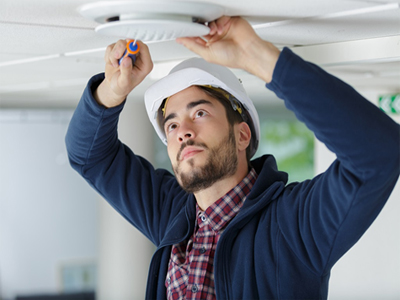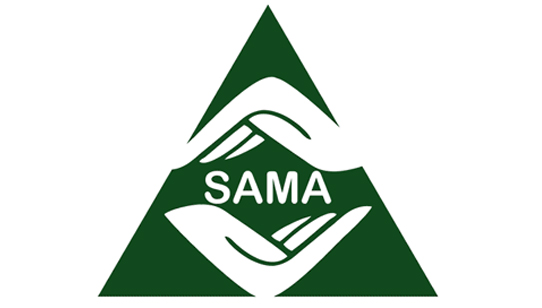Enhancing Commercial Safety with Smoke Detector Installation

In fortifying the fire safety
measures of your establishment, the installation of smoke detectors stands as a
paramount consideration. These devices are meticulously crafted to offer early detection
in the presence of smoke, affording occupants crucial time for safe evacuation.
Often complementing commercial fire alarm systems, they work synergistically to
ensure comprehensive fire protection.
Understanding the two primary
types of smoke detectors—Photoelectric and Ionization—is pivotal. The National
Fire Protection Association (NFPA) elucidates that while ionization smoke
alarms exhibit heightened responsiveness to flaming fires, photoelectric smoke
alarms excel in detecting smoking and smoldering fires. Armed with this
knowledge, let us delve into the requisites for commercial smoke detectors and
their installation.
Navigating Requirements for
Commercial Smoke Detectors
The prerequisites for smoke
detectors in commercial settings vary contingent upon factors such as
dimensions, layout, functionality, and occupancy allowances. Consulting local
regulations is imperative, given the potential disparities across city, county,
and state codes. Professionals often adhere to standards promulgated by organizations
like the NFPA, furnishing invaluable guidance on prospective requisites.
Furthermore, mindful consideration
of your business insurance policy requirements is essential. Insurers may
stipulate specific elements necessary for compliance, underscoring the
importance of aligning your choice of smoke detectors and systems with these
guidelines.
Estimating the Cost of
Commercial Smoke Detector Installation
The estimation of commercial smoke
detector installation costs is best entrusted to professional fire protection
companies. Drawing upon factors such as square footage, the requisite number of
detectors, and the preferred detector type, they can furnish a comprehensive
quote. Additional service fees may be applicable, contingent upon variables such
as system preparation, hardwiring, or monitoring.
Moreover, the selected type of
detector significantly influences the overall cost, with ionization and
photoelectric detectors diverging in price. To ensure precision, soliciting
quotes from accredited fire protection companies or suppliers specializing in
commercial-grade systems is prudent.
Preparation and Maintenance
Protocols
Upon delineating requirements,
system type, and installation costs, the installation endeavor commences.
Diligent preparation is warranted, particularly when integrating smoke
detectors with a fire alarm system. Formulating a meticulous checklist
facilitates the fulfillment of essential prerequisites, while ensuring a clear
and safe work environment for installers remains paramount.
Post-installation, scheduling a
comprehensive system inspection is imperative to validate proper functionality.
Regular inspections and maintenance form the bedrock of ensuring the sustained
performance of your smoke detector system, effectively safeguarding your
establishment and its occupants.
In Conclusion
The installation of a robust smoke
detector system stands as a pivotal stride in fortifying the safety of your
commercial premises. Professional installation coupled with routine maintenance
is indispensable for ensuring the safety and well-being of your assets,
clientele, and personnel. Prioritize this indispensable safety facet to
effectively shield your enterprise and cultivate peace of mind.













